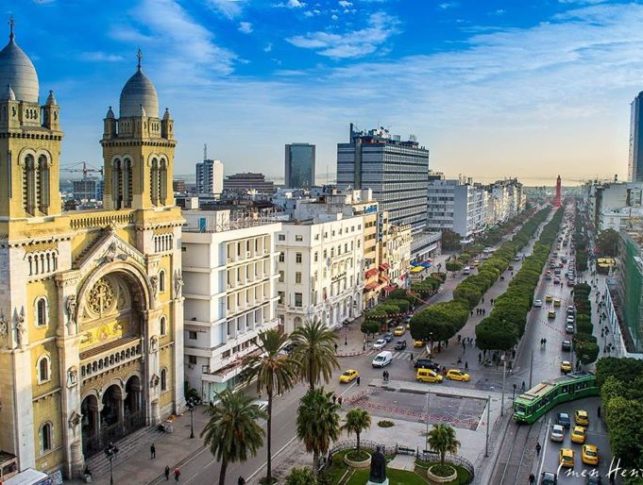Due to political instability and terrorism, Tunisia has been struggling economically. Could exports be the solution?
Tunisia’s economy had been in a fragile condition for many years. Still reeling from the global financial crisis, the Arab Spring uprisings left Tunisia and many other North African economies stagnant as a result of the regional instability. The problem was further compounded by risk adverse foreign investors, who came to view countries in the region as unattractive prospects.
Then came the terrible terrorist incidents of 2015. The attacks were designed to undermine the Tunisian economy, and they were successful in doing so. The portents were dire for a country in which tourism accounted for 14.9% of GDP in 2014, whilst employing approximately 12% of the working population.
Exports as the answer
A full-on financial crisis was fortuitously averted by the slump in global oil prices, combined with a good year for Tunisian exports of olive oil. Olive oil production on the European continent was hampered by a historically poor harvest in 2015. Yet Tunisia enjoyed record harvests, which enabled the beleaguered nation to quadruple its export revenues of olive oil from US$ 250 million in 2014 to in excess of US$ 1 billion in 2015. These factors have helped Tunisia narrowly avoid the fiscal brink; additionally they have illuminated a potential escape route from the economic wilderness.
The boom of last year’s olive oil season has set events into motion, as Tunisia can ill afford to let such a success become a one-off. Fortunately the EU has realized this, and in an effort to assist Tunisia they doubled the country’s olive oil export quota back in September 2015. If high production can be maintained, Tunisia can become a perennial player in this area. However, in a microcosm that reflects the overall Tunisian economy, Tunisian olive oil products are exported in their most basic and least valuable form. Value and jobs can be added by exporting refined, branded bottles as opposed to the current situation: exporting raw olive oil that is refined and branded by Spanish or Italian firms.
Transitioning to the exportation of more diversified and sophisticated products is something that would benefit other sectors within Tunisia. As an example Tunisia currently exports crude oil. However efforts are being made to finance and build the necessary facilities that will allow for the exportation of refined oil products. As with olive oil, this will create jobs and generate more revenue from the countries resources.
What needs to be done
At a recent conference to discuss the promotion of Tunisian exports, the President of the Tunisian Confederation of Industry Trade and Handicrafts, Wided Bouchamaoui, highlighted the value that an increased focus on exportation would bring to the economy: “Tunisia could raise the value of its annual exports to 100 billion dinars in the next decade.”
However, if such targets are to be achieved, continued oversight will be needed. Due to government intervention, the Tunisian dinar has been overvalued for many years, subsequently hampering exportation as Tunisian goods have been comparatively expensive. In an attempt to remedy the situation the Tunisian Central Bank has allowed the Dinar to depreciate in a controlled fashion. Despite this, the currency is still overvalued by as much as 15% according to some analysts. Further controlled depreciation is an ugly necessity, should Tunisia want its goods priced properly on the international market. This would serve as the catalyst to stimulate Tunisian exports and help reduce the trade deficit (US$ 6.6 billion).
The painful fallout from this policy is that for ordinary citizens their savings have lost value and their buying power has been reduced. The government finds itself in a precarious, high stakes situation: risk social unrest by allowing the currency to slide further, or hamstring the export-led recovery by giving in to public pressure.
Additionally, Tunisia has a major problem with illegal cross border imports and exports, a legacy from the Zine El Abidine Ben Ali regime. These activities undermine the country’s legitimate export enterprises, discourage foreign investors and deprive the state of taxable revenues. Whilst the current government has taken some steps to eradicate these practices, more must be done to legitimize all cross border trade.
If managed correctly, the export industry can be used as a major weapon in the Tunisian economic recovery. The benefits are numerous: exports can generate much needed revenue for the nation, tackle high unemployment, rebalance the trade deficit, generate new industries and encourage long-absent foreign investment in the country.




